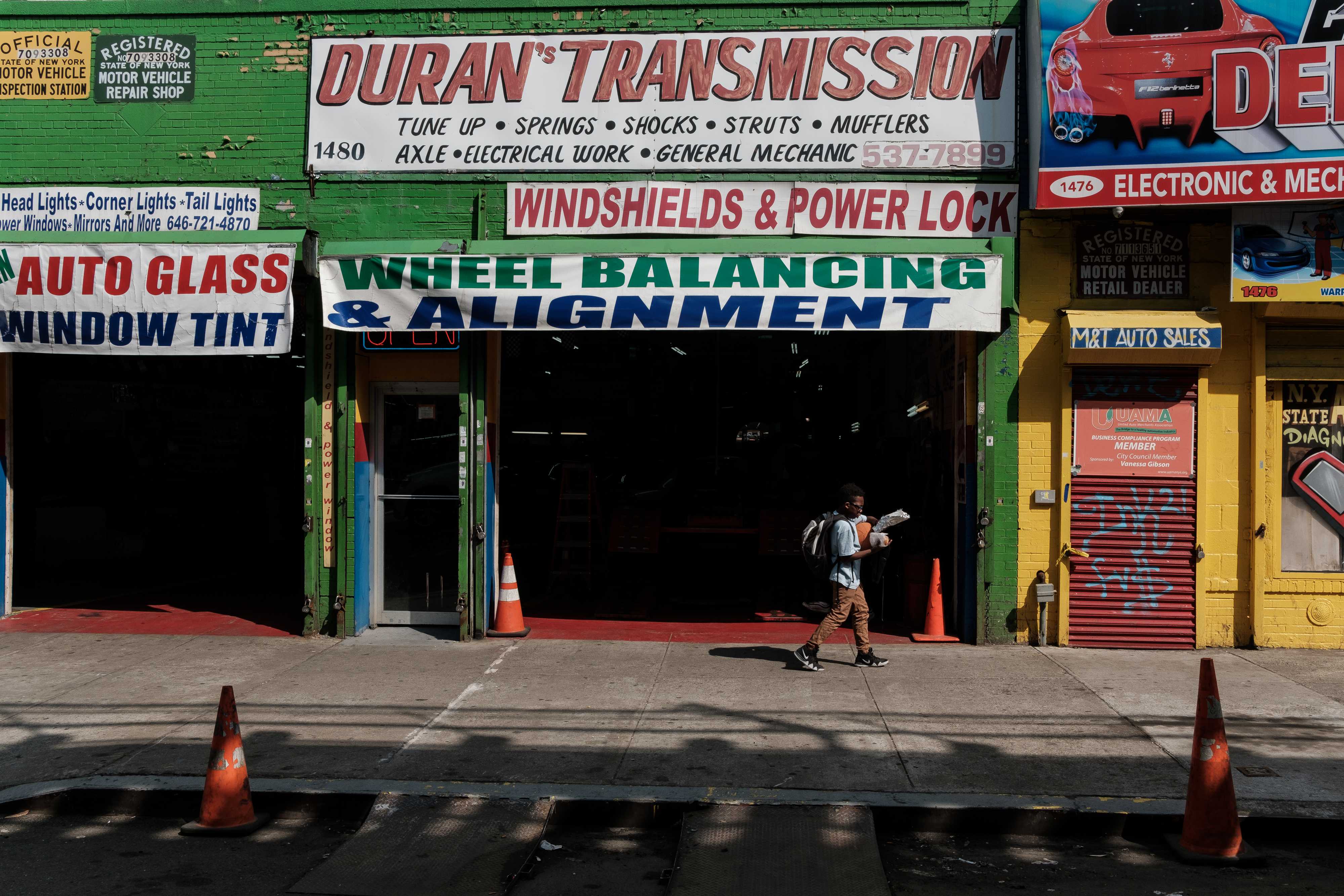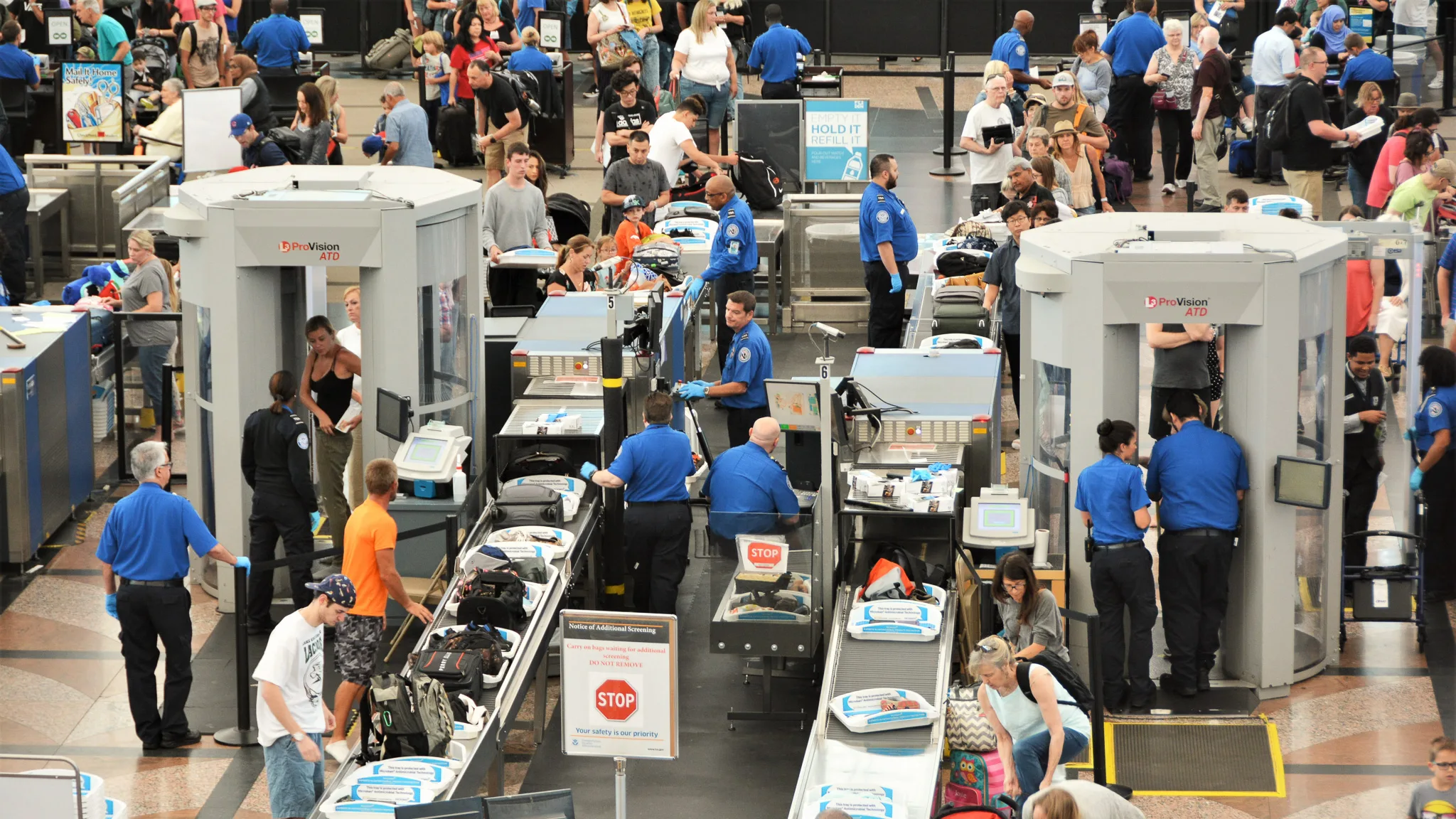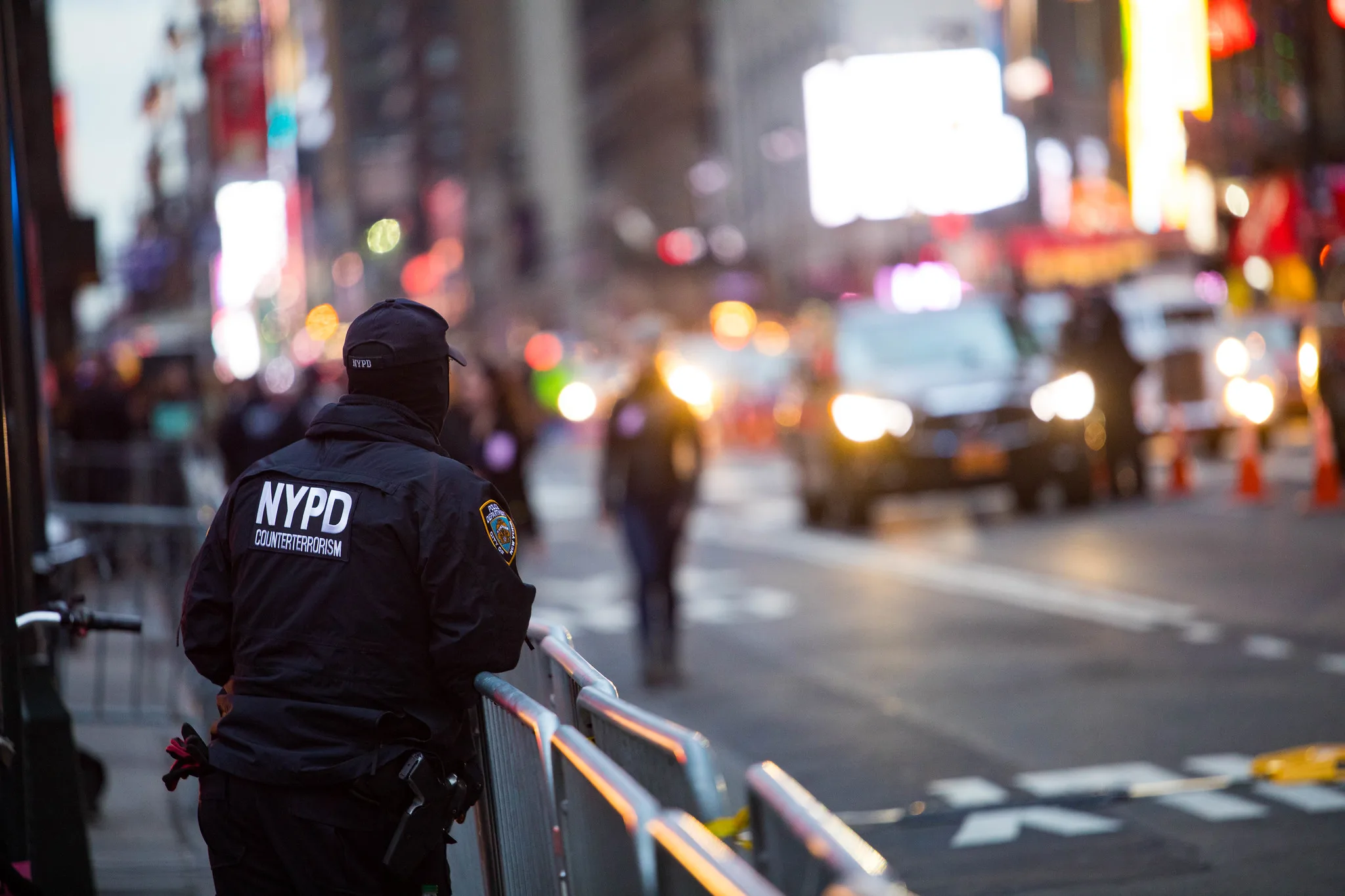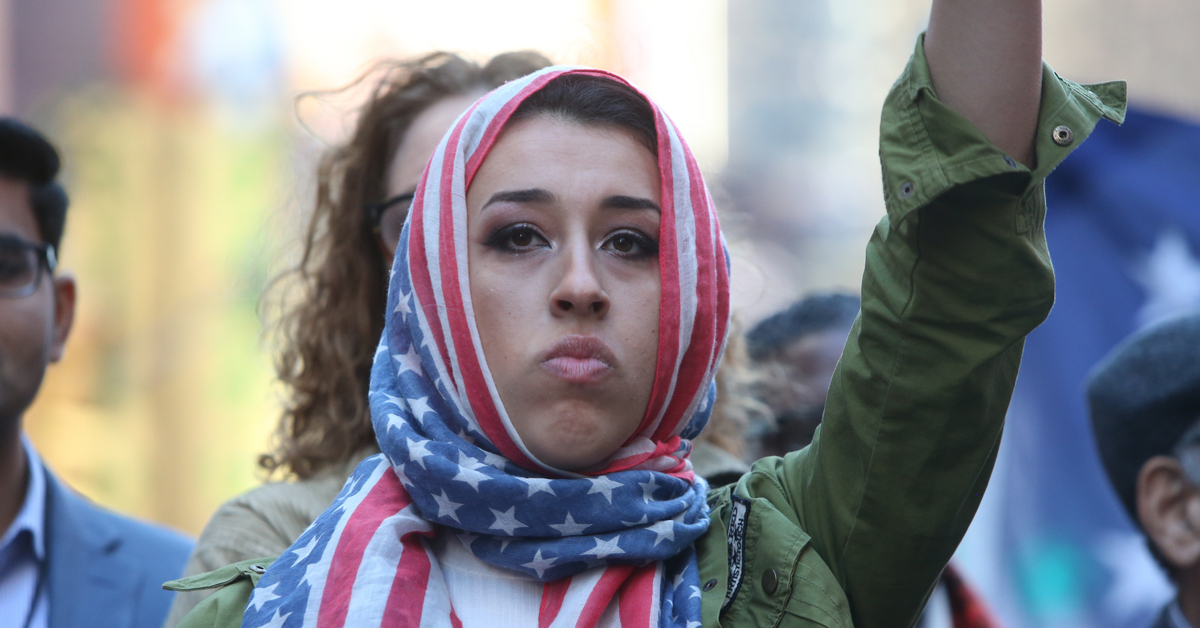”I have a mortgage to pay and a kid in college,” says Pavel Lopez, the founder of Flatcode Communications in the Bronx. Lopez’ business specializes in outfitting all types of taxis — from yellow cabs to Ubers — with electronic devices like GPSs, meters and cameras. Lopez has been building up his business in a Jerome Avenue garage for over a decade, but now feels it’s in limbo due to the street’s recent rezoning.
In late March, the City Council approved a plan to rezone a two-mile commercial stretch of Jerome Avenue north of Yankee Stadium and several of its offshoot streets. It could easily displace hundreds of immigrant-owned small businesses that have been in operation for decades; most are renters in commercial spaces.
Bustling Mexican grocery stores, “farmacias,” fruit stands, Yemeni bodegas, barber shops, botanicas, fabric shops, halal butchers, eateries owned by immigrants from the Dominican Republic to Ghana and a slew of auto body shops operate along the 92-block commercial district.
Under the rezoning, the one- or two-story buildings housing these businesses could eventually be razed and replaced by nine- to 17-story residential buildings with commercial ground levels or by buildings large enough to accommodate big box stores like Target.
The rezoning — favored by City Council member Vanessa Gibson, a Democrat whose district office is on Jerome Avenue, and Bronx Borough President Ruben Diaz, Jr. — could provide 4,000 new homes where these businesses currently stand, a quarter slated to be “permanently affordable,” as city officials put it. Affordability is derived from formulas based on Housing and Urban Development’s Area Median Income of $93,900 for the New York City region. The median income in the Jerome Avenue area is $26,226. Other initiatives include green spaces and new schools.
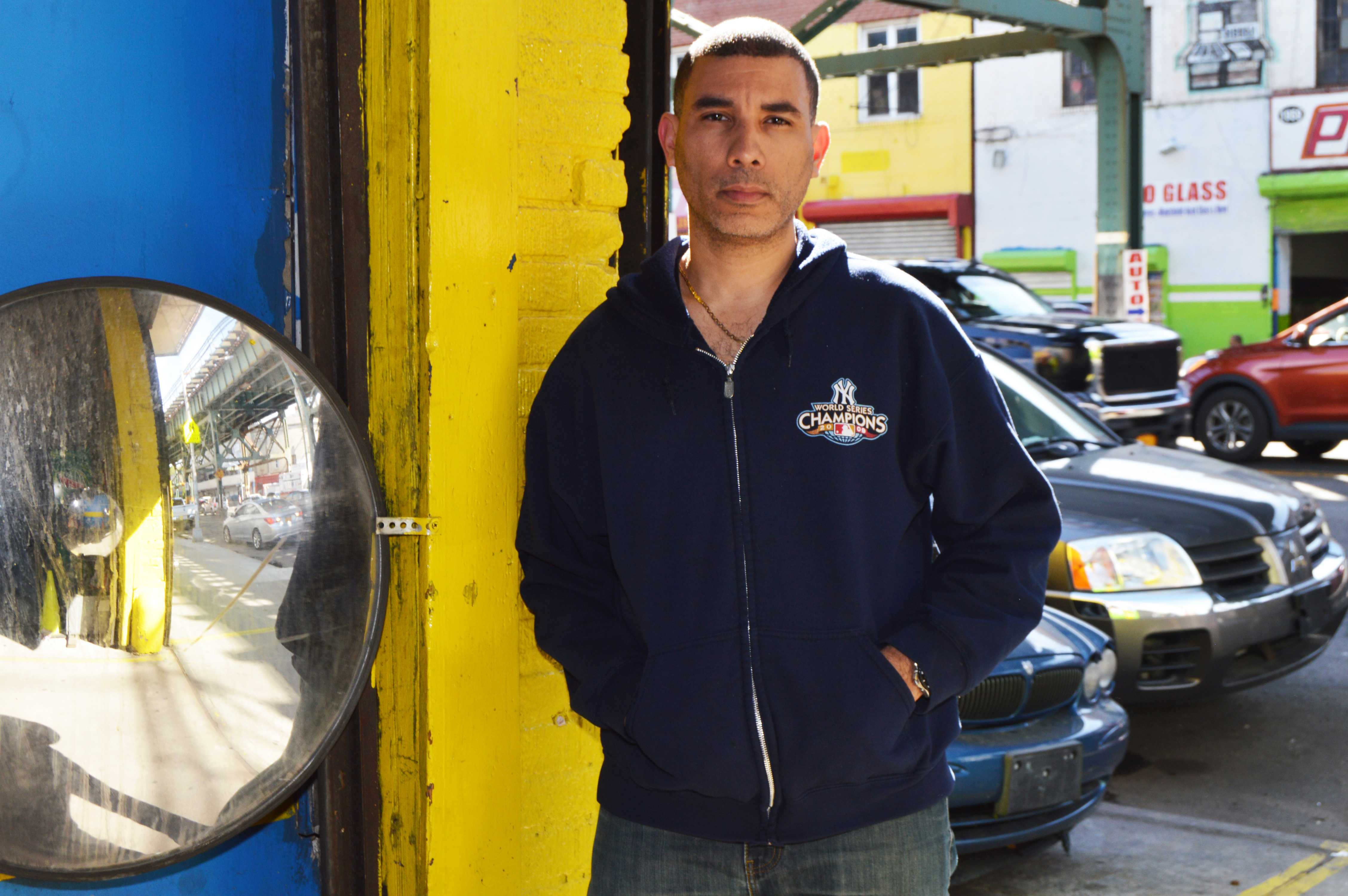
However, the attention to Jerome Avenue small businesses — already under siege because New York City has no commercial lease regulations — seems to have been an afterthought and the consequences could be life-altering, according to most business owners, especially in the auto sector, activists and those involved with economic development, such as Elena Conte, director of Policy at Pratt Center for Community Development. A Pratt Center report from late 2017 estimates the rezoning will cause 75% of the current auto workforce to eventually be displaced.
Jerome Avenue is not blighted, but rather a lively, diverse commercial neighborhood frequented by immigrants who live nearby, primarily from the Dominican Republic, with others from Mexico and Ghana, among other countries.
As the No. 4 train periodically rumbles overhead, school kids of all types congregate. Some boys sport cornrows, some girls wear headscarves. Families push baby carriages and walk their dogs. Occasional blasts of salsa or merengue music reverberate from passing cars. On the quieter cross streets the call to prayer can be heard from one of the neighborhood mosques.
A napping chicken might be spotted on a sidewalk, or a man walking door to door trying to sell fish dangling from a rope clutched in his hand.
The neighborhood is no longer zoned for the auto-related businesses. Pavel Lopez’ Flatcode Communications is one of approximately 150 to 200 auto businesses leasing spaces along Jerome Avenue, operating out of heavily equipped garages or no-frills lots. Although the zoning has changed, the auto businesses in full compliance with city regulations are grandfathered to continue their operations at their landlords’ discretion. But no new auto shops can open.
Many landlords are issuing year-to-year leases or no leases at all in anticipation of a possible lucrative offer to buy buildings or lots. “Everyone is nervous,” says Lidio Robles, president of EJ Lalo Auto. Manager Kelvis Sanchez adds: “We are losing workers; no one wants to stay to the end.”
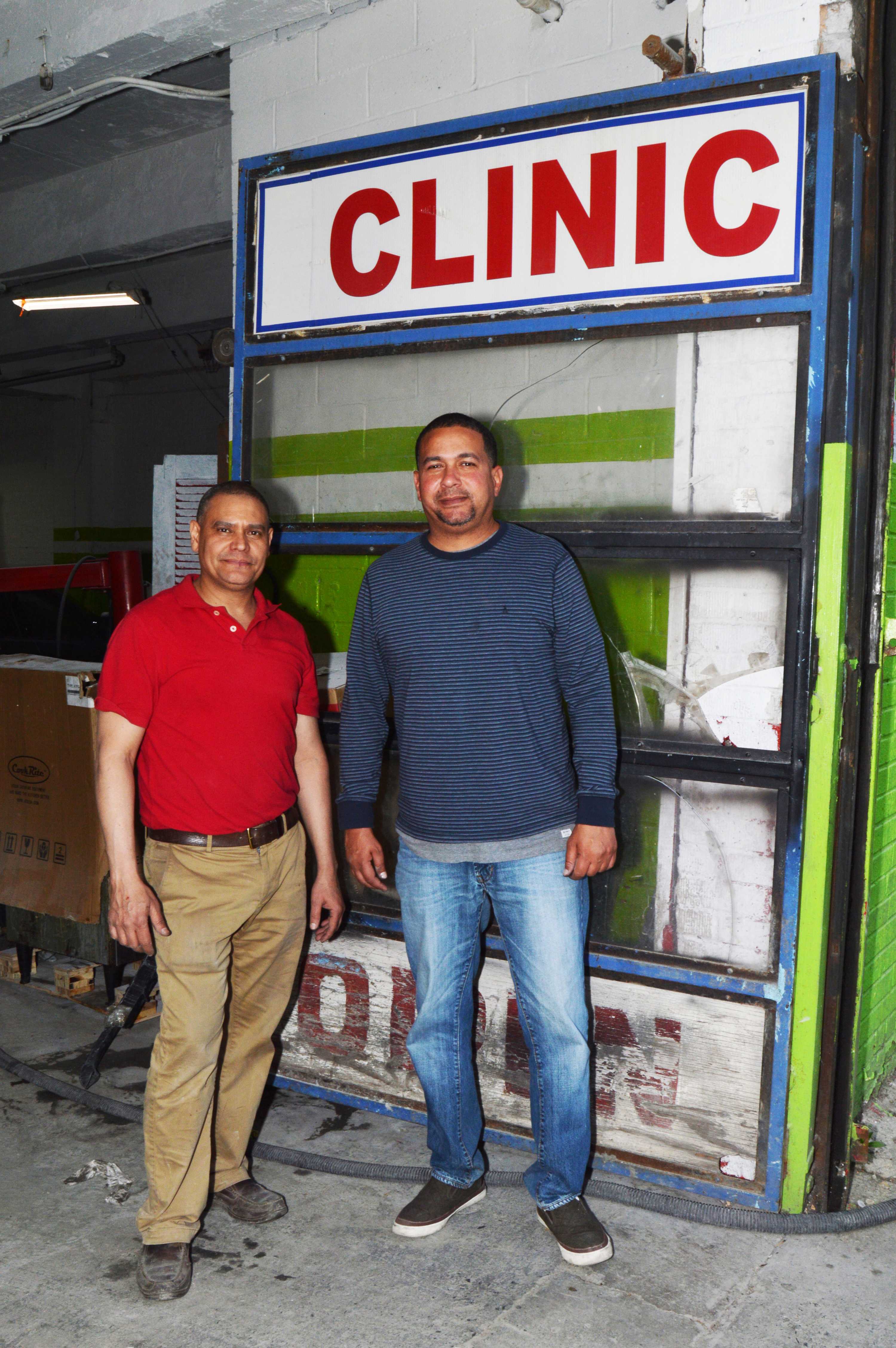
The Department of City Planning’s primary concern with rezoning Jerome Avenue seems to be affordable housing. When asked about the potential 77 businesses and 584 jobs that could be lost by year 2016, stated in the Environmental Impact Statement a DCP spokesperson answered by email: “The City will proactively ensure that every resource that businesses in need are entitled to is provided.” Oddly, they added, “zoning was maintained to enable a concentration of auto businesses to remain and expand,” which refers to two small areas several blocks from Jerome Avenue around 170th Street.
The city has agreed to reimburse displaced auto businesses up to $20,000 if they are a Small Business Administration (SBA) defined small business and in operation at the time of the rezoning. But these businesses must find their new spaces and finance the actual move themselves.
“$20,000 is nothing for auto repair,” states Miguel Jimenez, the manager for El Mundo Auto Repair, which has a cage of pet parrots on its sidewalk. “We are going to lose a lot of business,” Jimenez adds, noting that El Mundo was displaced once before in 2011 by Columbia University’s expansion in Upper Manhattan.
Out of the city’s $198 million allocated towards Jerome Avenue’s redevelopment, only $1.5 million is designated to help the auto businesses, which includes the relocation funds.
Pedro Estevez, owner of the Bronx-based non-profit United Auto Merchants Association or UAMA, says the rezoning is nothing short of catastrophic. “The only reason the city is doing this is because it’s a Latino, minority community,” he said, calling the gentrification that he predicts will hit the neighborhood “Latino and minority cleansing.”
Estevez, 68, is originally from the Dominican Republic. He’s devoted himself to UAMA since he founded it in 2005 after running multiple auto-related businesses. The association’s orange posters and banners can be found in various shops along Jerome Avenue, where he visits frequently. He recently called a news conference on Jerome Avenue because some auto businesses were told they had five days to vacate their spaces as an adjacent building and surrounding lots were sold for just over $11 million. The landlord has since relented and is letting them stay on a month-to-month basis.
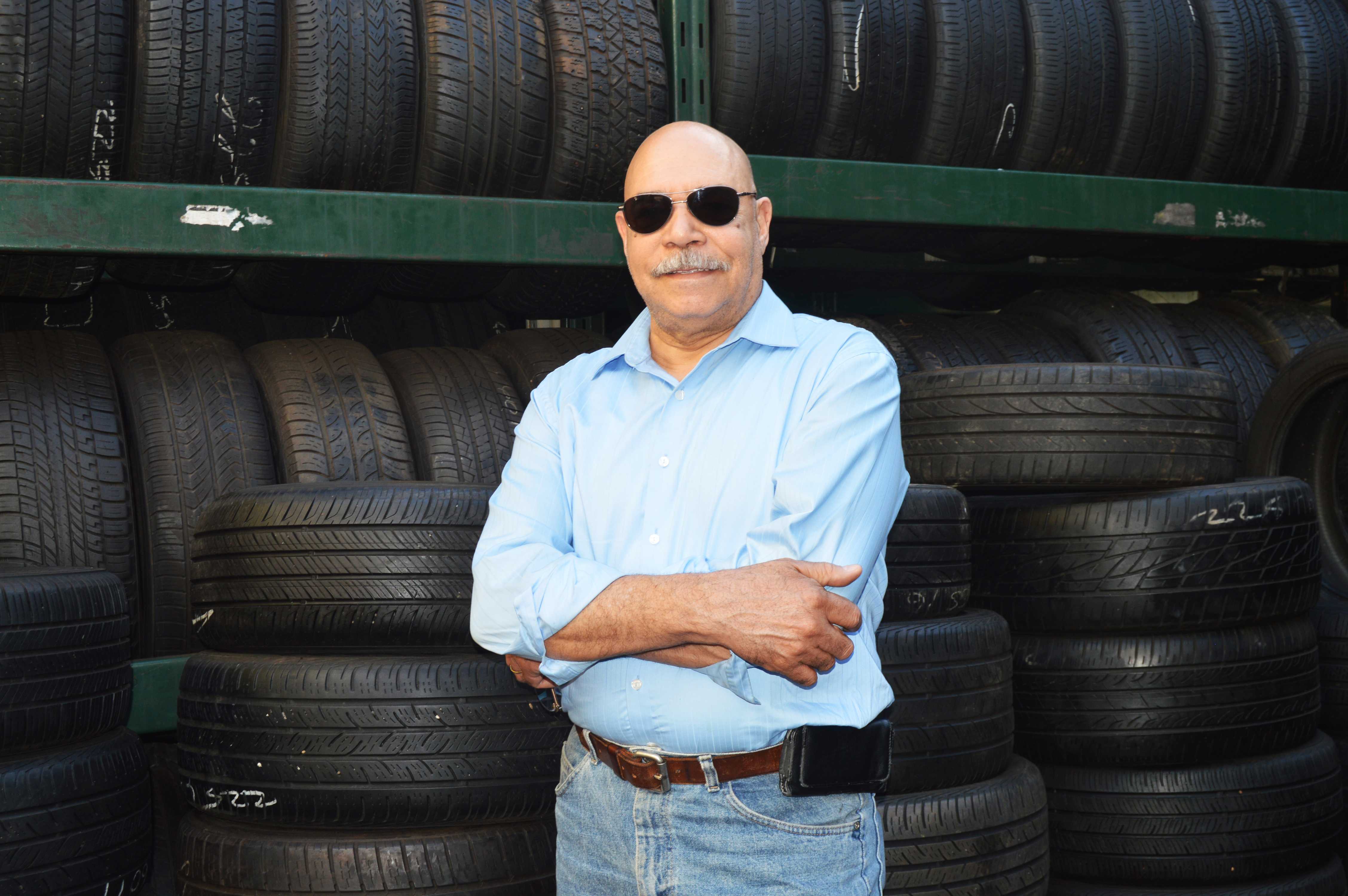
The new zoning permits other small businesses along Jerome Avenue, but the business owners who know about the rezoning — many don’t — are anxious that rising rents will about eventually price them out of the neighborhood or that they’ll be displaced if their landlord sells the building.
However, some business owners such as tailor Victor Senise, originally from the Dominican Republic, are happy about the rezoning.
“Progress is good,” Senise says, wearing a blue kippah, as his father was an Italian Jew. “The people who say ‘no’ are stuck in life.” Senise, who has rented his space for three years, has no idea if his landlord is planning to sell the building for redevelopment and isn’t particularly worried. “I’ve got my God with me,” he says with a smile.
“The Bronx has been the frontier forever,” says William Beltran, a real estate agent with Douglas Elliman in the Bronx. “There’s still a little stigma — is it safe?” Beltran says the rezoning will bring a new face to the neighborhood. Commercial space now rents for about $24 to $35 per square foot. Beltran says it could easily go above $40. Originally from Ecuador, Beltran concedes the redevelopment could displace some immigrant-owned businesses, but says it’s a matter of adapting. “A bodega selling potato chips,” says Beltran, “will eventually not make enough money to pay the rent.”
The business owners who also own their buildings are sitting on potential pots of gold.
“It’s great for me,” says the owner of Mount Eden Florist, who gave his name only as Chris. Originally from Greece, Chris came to America because he was “crazy” for rock ’n’ roll, adding, “I was in love with Kiss!” He owns several buildings in the rezoned area and says he’s already received offers he describes as “very good,” declining to disclose dollar amounts. But Chris isn’t selling because he wants to eventually develop them himself. “I’m still going to have a flower shop,” he says. “That’s my life!”
One apparel shop and building owner on 170th Street who doesn’t want to be identified says that if a developer approached him, “I wouldn’t sell right now — I’d wait for the highest price.” He adds, “The rezoning isn’t worth it if the rents go so high nobody can afford it … Without them, we can’t be here.”
Most of the Jerome Avenue small business owners who know about the rezoning are confused about how it will impact their businesses. The rezoning passed in late March, but other than calling 311 for information about existing business development services, there is no centralized phone number, email, office or person to answer specific questions the Jerome Avenue business owners might have. The finalized zoning map on the Jerome Ave nyc.gov website is difficult to find, as is the Points Of Agreement, which is only posted in English. The city’s interactive zoning website ZoLa, where business owners should be able to look up new zoning by address, initially had glitches and gave incorrect information.
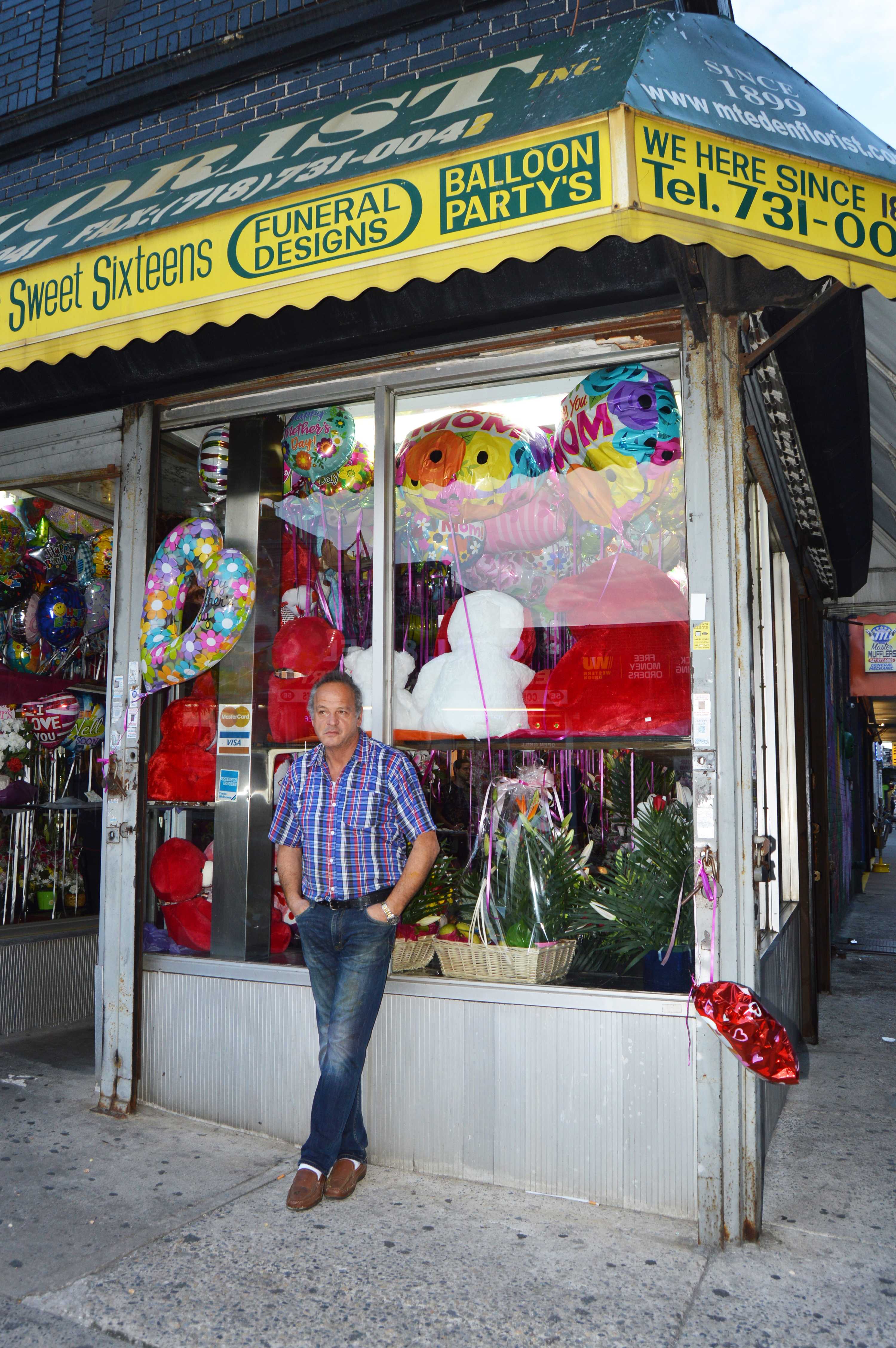
UAMA, Pratt Center for Community Development and Bronx Coalition for a Community Vision advocated for the auto shop owners and workers prior to the various votes needed to pass the rezoning, but there was little opposition at the public meetings. Lopez of Flatcode Communications attended the meetings but says the rezoning information was vague and questions weren’t answered. “The city thinks everyone is an idiot,” he says.
Pedro Ventura owns Vent Bike Tech, a motorcycle repair shop located on a strip of Jerome Avenue that includes a live poultry shop that’s been spared rezoning because it butts up against bedrock. Ventura knew about the meetings and attended regularly. “Most of the people here think it’s a joke, [saying] ‘They’re not going to kick us out!’ I told them ‘It’s not a joke,’” Ventura says.
According to Small Business Services, the city agency that helps small business owners, a mobile unit will be deployed to the area in the fall once a month. A new “Jerome Avenue manager” position will be created and area workers will be eligible for free job training in green construction among other sectors. Although SBS is “committed to providing adequate resources to meet the needs of all Jerome Avenue area jobseekers and business owners,” as stated in a spokesperson’s email, the SBS resources won’t help business owners who have spent years if not decades building their businesses, unless they’re already looking for a total career change.
For now, business owners like Mike Abass are cautiously awaiting the fate of their strip in the Bronx. Originally from Jordan, Abass presides over a barbershop that’s been in operation for over 30 years, renting a modest space just off Jerome Avenue. As he works on the hairline of a reclining client draped in protective cloth, Abass opines that the rezoning could eventually create more customers for area business, but it could also raise rents, displacing loyal customers and businesses like his own.
“It could be beautiful,” Abass says with a sigh. “It could be a curse.”
